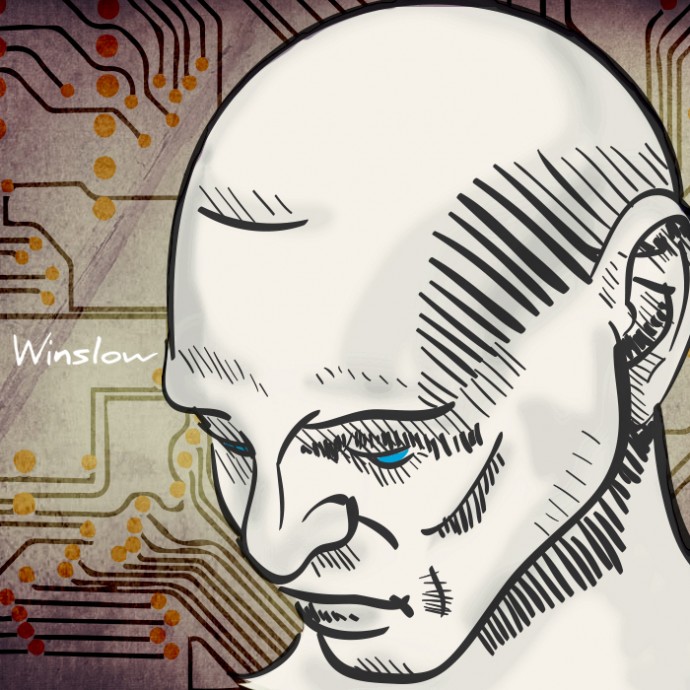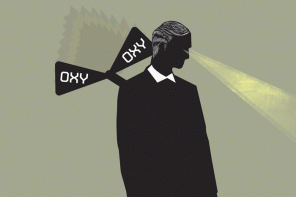A new movement has recently taken over the media: bio-hacking. This trend literally involves hacking into your own body with the help of technology. It ranges from body-modification, as in implanting cybernetic enhancements in to an organic body, to using heart rate monitors and neurologically enhancing substances. Winslow explains his personal approach to this phenomenon.
I’m pretty plugged-in to the health blogosphere and I have always been looking for better ways to optimize my biological function. I first heard the term “bio-hacking” when I discovered Dave Asprey’s pursuit of becoming a “bulletproof” human being, or learning how to supercharge your body on a podcast I listen to regularly. I thought it was the perfect word to describe what myself and many others have already been doing for a long time.
Dave really stresses a few health/performance issues that you don’t hear being discussed much. For example, he’s very sensitive to Mycotoxin (toxins produced by fungi) in foods, and has tailored his diet to avoid them. He introduced me to the emWave2, a device that monitors heart rate variability, which I use for feedback while I meditate. He also has used a CES machine while he sleeps to increase his sleep efficiency, which is a pretty awesome bio-hack.
Dietary experimentation is probably my oldest bio-hacking activity. I’ve noticed that I tend to think a bit more long-term than most people, but I can’t say why that is for sure. I started wrestling when I was 13, trying to efficiently cut weight for weigh-ins. Then in high school I was interested in staying lean and gaining muscle for some time. Now my dietary focus is more long-term health and longevity. When you think about well-being in the durable sense, you quickly recognize that health is essential. A little investigation reveals that diet and exercise are cornerstones of health. These recognitions were sufficient to get me interested in what science had to say about healthy eating.
Personally, I’m in to hacking my brain with meditation augmented with technology. I use a lot of basic health practices such as avoiding processed foods, not drinking too much and donating blood regularly (for men). I monitor my vitals with blood work, blood glucose tests, and some Quantified Self technologies that I found on the internet.
I meditate daily in the mornings for about 30 minutes. It helps me start off every day with a much clearer mind, take in the current state of affairs, and helps me prioritize what I should be working on. Sometimes, I use an emWave2 while I meditate. It’s a heart rate variability biofeedback device that measures your heart rate via an ear clip. Having reasonably-sized and smooth changes in your heart rate as a function of your breathing rhythm is a sign of being in a parasympathetic state, which is desirable for meditation and relieving stress in general.
The emWave2 helps you train yourself to control your heart rate frequency by playing different audio tones to indicate how “coherent” your heart rate variability rhythms are. This feedback seems to help most people train themselves to relax deeply, as this is the natural way to improve your heart rate regularity.
Dual-N-Back training is the only type of mental training that I am aware of that has multiple peer-reviewed scientific trials supporting its ability to improve general working memory, thereby improving overall IQ as well. It’s a difficult memory game of trying to remember two simultaneous channels (e.g. audio and visual) of information, and remember the input that occurred N instances ago (where N can be chosen to challenge your current ability). The training is mentally taxing, and many analogize it to lifting weights but for the mind. A nice free software implementation is here.
Nootropics are a subclass of cognitive enhancing substances that are deemed to be very safe, in the long and short term. They usually just supply natural precursors to make neurotransmitters. Piracetam is one of the most popular and safe; however, some people, like me, don’t notice any effect from it.
Another popular Nootropic is Modafinil, a prescription drug for narcolepsy. It’s an alternative to caffeine for wakefulness promotion. Some people, like myself, prefer it to caffeine because it causes less side effects such as excessive mental excitement, thoughts hopping around, etc. It’s more direct in simply eliminating tiredness without replacing it with excessive mental stimulation. There’s good evidence from the scientific literature that Modafinil enhances some aspects of cognition in those who are sleep deprived, and some evidence that it may mildly improve attentiveness even in those not sleep-deprived.
Concerning the risks involved, the image of Icarus flying too close to the sun often comes to my mind. As a down-to-Earth example that affects many men, there’s perhaps the most popular body-enhancement supplement: whey protein. But whey is a highly processed food, and a study by Consumer Reports found that many of the most popular brands had levels of heavy metals that could accumulate to dangerous levels if used a lot over a long period of time.
Then there are more obvious risks like hooking your brain up to a machine that delivers electric current across it in order to enhance sleep or concentration. These exist today, and consumers can obtain them without too much difficulty. Then there are the “grinders” who are into bodily modification – implanting magnets into their fingertips and things like that. This can lead to infection and potential complications. Some are contemplating deep-brain implants currently used to treat those with mental disorders. Needless to say, this carries risk.
When I consider bio-hacking on a spiritual level, I can definitely say that it has changed my outlook on life. I think overall one of the primary cognitive biases of humans is shortsightedness. It’s why we so often do things that bring us momentary pleasure but a greater amount of future pain (e.g. binge drinking). I try to have a long-term perspective, and seriously consider things like putting in hours of training now to improve my long-term mental functioning.
Most of us are looking for some degree of happiness and fulfillment out of life. The Western approach to obtaining these is to influence and change the outer world to set up conditions conducive to our happiness. This includes things like protecting and increasing our families and friends, accumulating wealth, power, and prestige. Some Eastern philosophies, like Buddhism, put a greater emphasis on hacking the mind via meditation and spiritual practices so that one can be happy regardless of the external state of the world. Both approaches recognize some utility in the other.
Growing up, I was thoroughly indoctrinated in the Western approach to happiness, but have found it to be sorely lacking. I’ve now borrowed a lot from the Eastern approach, including a daily meditation practice, and have found it to be very helpful. I incorporate both approaches into bio-hacking. The Western approach has developed science and statistics, which are crucial tools for discovering what works and what doesn’t. These tell us things like what foods and supplements might extend our lifespans, and what types of training might increase our IQ. While having a higher IQ seems desirable, beyond a certain point it doesn’t correlate with increased happiness. The happiest people on the planet that I’m aware of are monks and other spiritual persons who have reoriented their minds away from greed, fear, and hate, to generosity, kindness, and love. I think it’s time to turn science to the inquiry of how exactly this is achieved, and whether or not certain technologies, such as neurobiology-feedback, might help us get our minds to resemble those of spiritual individuals. I personally doubt that the supernatural nonscientific beliefs that go along with many spiritual philosophies are important to achieving this. This extra baggage should be discarded, as it is both unnecessary and often stands in the way of scientific findings that can help us as well.
So to summarize, bio-hacking for me ties in with my dual Western/Eastern philosophy of improving my experience of reality while not leaving reality altogether, but still working towards improving this world for ourselves as well as others. Methods from the West and the East are both very useful in accomplishing this.







